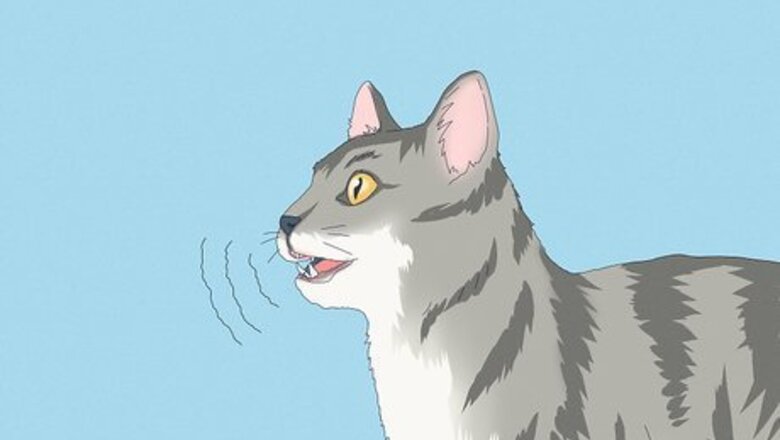
views
- Your cat might chatter because they’re excited by an animal they see, they’re frustrated they can’t catch it, or they’re imitating how they’d bite it.
- If your cat is chattering when they’re not watching a prey animal, it can be a sign they’re in pain from a dental issue.
- Chattering is usually done in response to watching prey, while chirping is how mother cats and kittens communicate.
Reasons Cats Chatter

They’re excited by prey. This is one of the most common reasons why cats chatter. You’ve probably caught your cat chattering at the window as they watch birds flitting about outside. Even though they’re domesticated, your cat is a hunter at heart. When they spot prey, they get a boost of adrenaline, which causes them to chatter as they think about capturing what’s just beyond the window. You might expect your cat to chatter when they’re excited about eating or chasing a toy. However, chattering usually requires their hunting or prey drive to kick in.
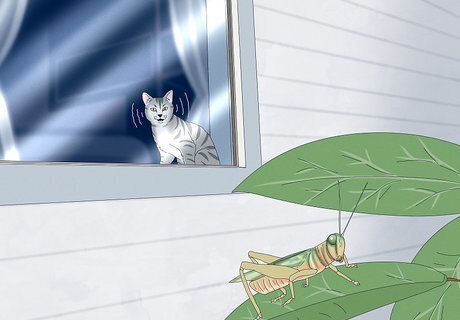
They’re frustrated. Your cat is so excited about the possibility of catching their prey, but there’s just one problem. There’s a window pane in the way! Your cat’s chatters could also be them voicing their annoyance that they can’t get a hold of those pesky birds, even though they desperately want to.

They’re imitating their kill bite. Some experts believe that when cats chatter, they’re mimicking how they’d bite their prey to kill it. It might be hard to imagine your house cat as a skillful, stealthy hunter, but their instincts are still there. It takes a lot of precision for a cat to bite down in the right place to kill their prey, so your cat's chatters might be them practicing.

They’re mimicking their prey’s vocalizations. It might be that your cat’s chatters are imitating the call of the bird they’re watching, hoping that the familiar noise draws them in. That might seem far-fetched, but scientists discovered that some species of wild cats, like the margay, do just that! The margay’s chattering lures their prey, usually a tamarin monkey, to them. The tamarin thinks the cat is one of them, only for the margay to pounce and catch their dinner.
When Chattering Becomes a Problem

Chattering without prey around can mean your cat has a dental issue. If your cat is chattering after their dinner or as they’re relaxing, it might be a sign that they’re in pain from a dental issue like tooth resorption. Look for other indicators that your cat might have a problem, such as drooling, bad breath, and lack of appetite. If so, take your cat to the vet to get them checked out.
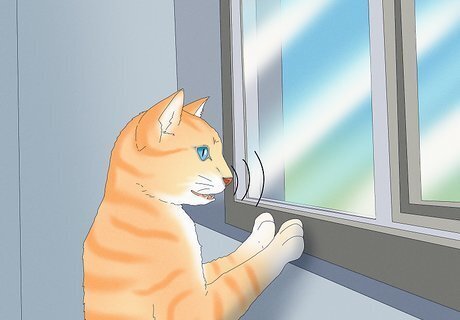
Constant chattering can mean your cat is anxious and overstimulated. Sometimes, the frustration of not being able to catch their prey outside overwhelms your cat. Over time, this can cause your cat to get aggressive. Watch your cat’s body language to see if they look anxious or overstimulated. If they do, remove them from the situation. Close the blinds on the window they were looking through or distract them with a toy or treat. Dilated pupils, a flicking tail, and flattened ears are all signs your cat is anxious or angry. Getting your cat to chase a toy is fun, but don’t tease them for too long by keeping the toy out of their reach. Toys like feather wands, laser pointers, and catnip mice are great ways for your cat to feel like they’re hunting. Puzzle feeders can also help your cat work out their energy and stimulate their mind.
What does it mean when my cat chatters at me?
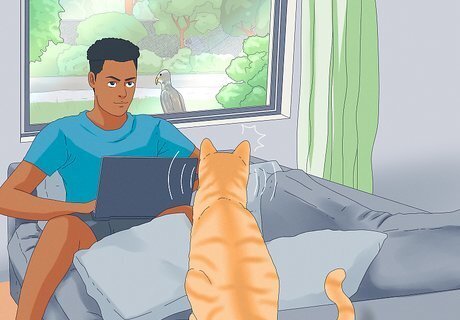
It’s likely that a cat isn’t chattering at you, but rather at something nearby. It’s not super common for cats to chatter at anything but the animals they hope to catch. But, your cat might look like they’re chattering at you if you’re blocking their view of the bird, squirrel, or bug that’s got their attention! While less common, your cat might chatter at you when you’re playing with a toy that could look like prey, such as a mouse. If you’re keeping it away from them, they might chatter in excitement about hunting it down.
How is chattering different from chirping?
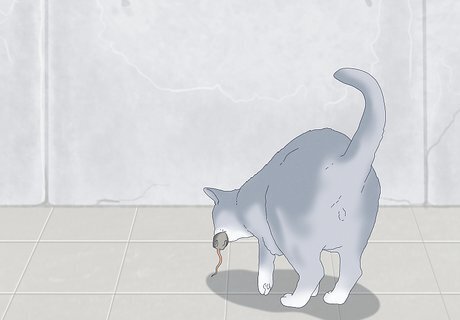
Cats chatter around prey, while chirping is usually used for kittens. You almost exclusively see cats chattering when they’re watching a tasty animal run by the window. On the other hand, chirping is a way for cats to communicate with each other. Mother cats commonly chirp to let her kittens know she’s nearby. When they’re ready to leave the nest, she’ll chirp to get them to follow her. Your cat might chirp at you though! They might want you to follow them to their food bowl or help them find their favorite toy. Cats might also chirp at each other when there’s something one of them wants.
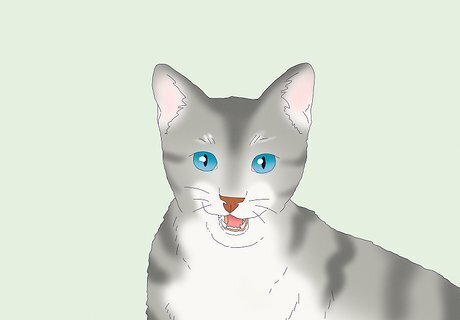
Chattering is a low, stuttering sound while chirping is high-pitched. If you’re not sure about the difference between chattering and chirping, just listen! When your cat chatters, they move their jaw very quickly with their mouth open, making a sort of clicking sound. On the other hand, your cat opens then closes their mouth to make a chirp. It is also more high-pitched and can sound like a bird’s call. Chattering is actually voiceless unlike chirping, meaning your cat doesn’t use their vocal cords to make this noise.














Comments
0 comment